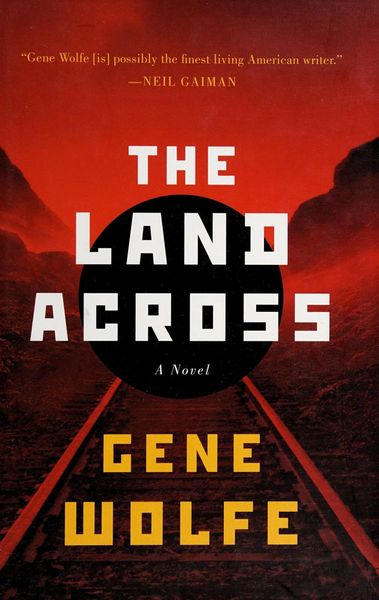
The Land Across
In need of a new location, an American writer of travel guides journeys to a small and obscure Eastern European country where it soon becomes evident that there are supernatural forces at work, but they are not as threatening as the country's corruption and brute forces of bureaucracy.
Reviews
Bryan Alexander@bryanalexander
Jason Porterfield@katzenpatsy
Steven O'Toole@osteven